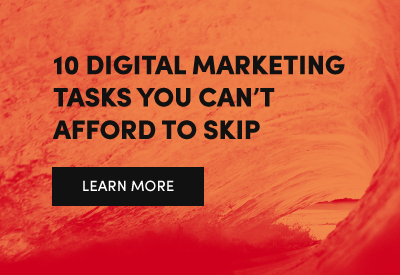Higher Education Marketing: Revise Your Messaging for Generation Z
Regardless of the success of your past higher education marketing strategies, it’s time for a change. That change was born between 1995 and 2010. Generation Z comes with its own host of preferences, problems, spending potential, and perspectives.
Today’s higher education prospects have evolving values and pain points, and if you’re using the same messaging you’ve been using for years, you will miss the mark as these young people look into career options, universities, and law schools.

Who is Gen Z?
Just when we started getting used to Millenials (or getting used to endless hot takes on Millenials), a new generation entered the playing field. Gen Z is the most racially diverse generation in American history. The United States Census Bureau found that 48% of Generation Z is non-white.
This generation is growing up with a keener eye on social justice issues and inclusion. Gen Z overwhelmingly supports marriage equality.
This group has a passion for social justice – global justice.
They’ve grown up highly connected and have a broader global perspective than previous generations, a perspective that lends itself to a sense of responsibility to change (or save!) the world.
“This group has a passion for social justice – global justice. They seem very optimistic about their ability to contribute to a better society. I am floored by their essays about how they WILL impact their communities,” says Laura Zuppo, Assistant Dean of Strategic Enrollment Management at Stetson University College of Law.
See how we partnered with Stetson Law to attract more qualified law school applicants >>
The internet has been around for their entire lives. Gen Z engages with shorter content than previous generations, and expects a high level of personalization. “They prefer to see everything via their mobile device and prefer concise and to the point messages,” says Zuppo. “They prefer graphics and visual representation of data.”
How do you understand Generation Z?
If there’s one thing you can learn from the frenzy over Millennials, it’s that you should stop othering entire generations. Over-the-top think pieces attributing things like the demise of bar soap or cereal to Millenials have resulted in memes — which, by the way, are one of the chunks of content this generation appreciates.
Instead of contributing to a pile-on about Generation Z or treating them like another species, try to get to know them and empathize with them. We are all, in part, the products of our upbringings and the challenges faced by those who molded our childhoods.
As with any generation, Gen Z is influenced by older adults. They saw their parents lose homes and savings during the Great Recession, and as a result they crave security. But they’re willing to take risks, such as starting their own businesses. It’s a generation ripe for inspiring change and progress.
But if you really want to know what Gen Z is all about, just ask.
The internet has been around for their entire lives. They engage with shorter content than previous generations, and expect a high level of personalization.
Develop fresh higher education marketing personas around Gen Z
Consumer research lends a great deal of information about this generation, but you need to take this a step farther and identify this generation’s pain points related to your higher education marketing messages. As your prospects quickly age out of your older marketing materials, it’s critical to refresh your messaging. Take time between admissions cycles to get to know the new generation.
Tech-savvy prospects will respond to short, simple research surveys — particularly if they’re incentivized. Identify those who are interested in sharing their perspectives and move on to email and phone interviews. Gen Z has high expectations, and they want to be heard. Even through research, you can make an impact on potential students by showing genuine interest in who they are and what they aspire to be.
Craft higher education marketing messages that matter to Gen Z
In fields like medicine and law, you may find that making a difference in the world takes precedence over making a lot of money. Specific insights like these, oftentimes unique to the fields your organization excels at, will give you the data and soul you need to hone messaging that younger prospects will connect with.
And they expect to connect.
Now is the time to revise emails, landing pages and advertising. Consider a fresh look at big-picture campaigns. Does your brand as a higher education institution speak to the pain points and needs of today’s prospects? Is it time for a pivot? Should you highlight different aspects of your university?
Get to the point with Gen Z
Gen Z may be tech-savvy, but as a generation, they value face to face communication and have already learned — oftentimes the hard way — that much is lost in translation over text and social media.
Video content (keep it short), highly personalized emails, and good old-fashioned phone calls will bring value to these prospects — if the message is right. Gen Z values human rights and human connection, and despite being the most tech-savvy generation yet, they’re craving marketing messages that feel authentic and set them on a path toward affecting change in the world. Do your homework to rise to that challenge, and you’ll meet the needs of Generation Z.

